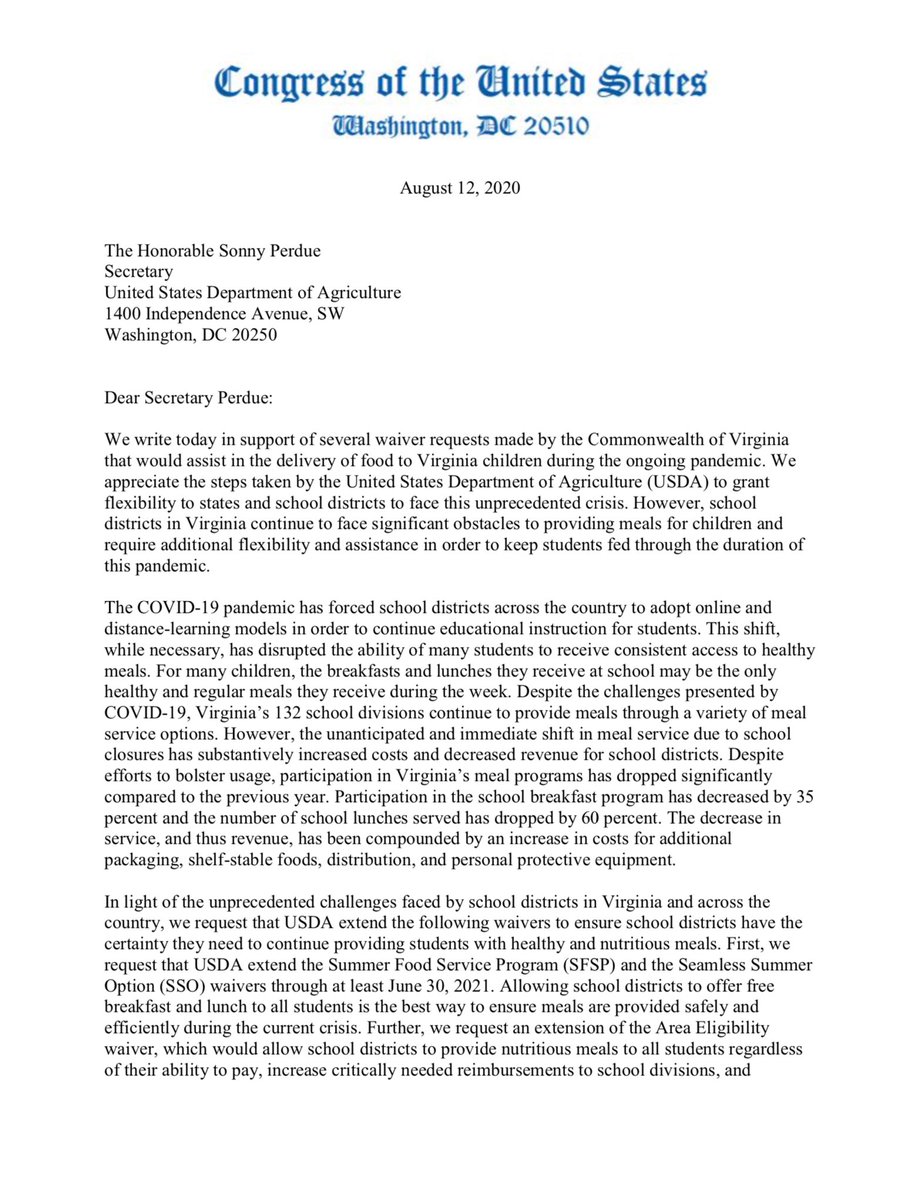Earlier this month, my colleagues in Congress and I called on Secretary Sonny Perdue of the @USDA to extend several waiver requests made by the Commonwealth to ensure school districts have the certainty they need to continue providing students with healthy and nutritious meals. 





The @USDA denied our request to extend the waivers to assist in the delivery of food to Virginia’s children during the ongoing pandemic, claiming they don’t have the authority to provide universal free meals during the crisis despite broad authority granted by Congress.
Over 30 million children rely on school meals every day. As many as 17 million children did not get enough to eat this summer. I urge the @USDA to reverse its decision and extend all school meal flexibilities to keep our kids from going hungry.
https://twitter.com/TheCounter/status/1298266511954423812
• • •
Missing some Tweet in this thread? You can try to
force a refresh










